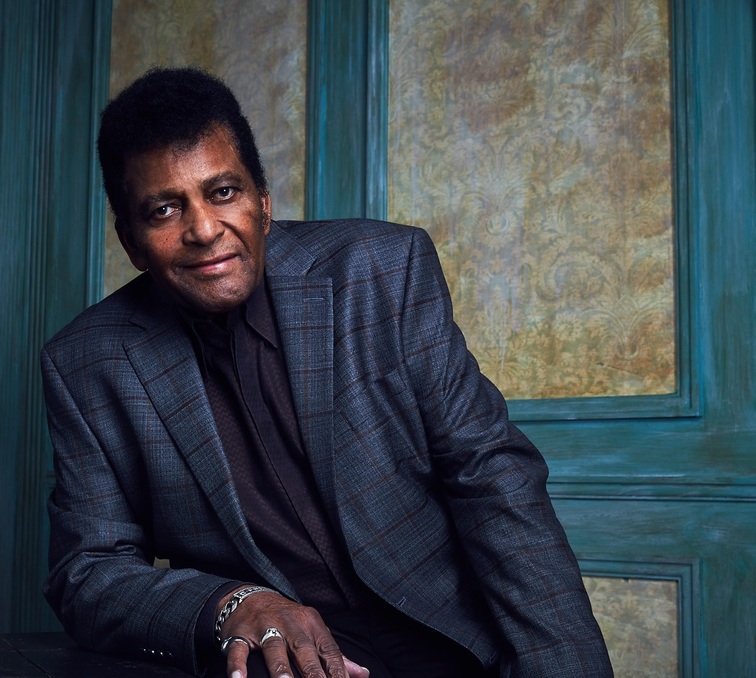Charley Pride, one of Country Music’s most legendary hitmakers who treated the world to such classic hits as “Kiss an Angel Good Mornin’” and “Just Between You and Me,” passed away today, December 12, 2020. He was 86.

“To say Country Music has lost a trailblazer is an obvious understatement, but in fact one of the biggest losses is Charley’s definitive Country voice. I remember working with Charley in 2009 on ‘Country Music: In Performance at the White House’ when President and Michelle Obama invited several Country artists to perform. He was a trailblazer in so many ways. It was a special night and Charley was telling amazing stories. Our deepest condolences go out to his wife Rozene and the rest of his family and friends at this sad time.” — Sarah Trahern, Country Music Association CEO
Through a mix of courage, determination and extraordinary talent, Pride made Country Music history by becoming the genre’s first Black superstar. Throughout the course of his career, which spans more than five decades, Pride received three CMA Awards, performed at the spectacular 50th anniversary show in 2016 and was most recently awarded the 2020 CMA Willie Nelson Lifetime Achievement Award. He was named CMA’s Entertainer of the Year in 1971, and twice Male Vocalist of the Year in 1971 and 1972 before being inducted into the Country Music Hall of Fame in 2000. Pride was also the first Black artist to co-host the CMA Awards, taking the reins in 1975 alongside Glen Campbell.
Pride’s background sounds like a classic blues singer’s story. The son of a strait-laced sharecropper father, Charley Frank Pride (named “Charl” by his father but spelled “Charley” on his birth certificate) was born on a 40-acre Mississippi cotton farm 50 miles due south of Memphis. Pride picked cotton to buy his first guitar, a $10 Sears, Roebuck model, when he was 14. Pride’s father was morally opposed to the culture and lyrics of blues music and was a big fan of the Grand Ole Opry. So instead of drawing influences from B. B. King’s Memphis radio show, Charley Pride was musically schooled on the likes of Ernest Tubb, Pee Wee King, Hank Williams and Roy Acuff.
At age 16, Pride left home to play professional baseball in the Negro American League. After two years with teams in Memphis and elsewhere he entered the army for a two-year stint, married Rozene Cohran, an ambitious and highly motivated Memphis woman who oversaw the business end of his career until his passing. He mustered out of the service in 1958 with every intention of having a big league baseball career. Pride played briefly in the Pioneer League and then worked at a smelting plant in Helena, where he played for the plant ball team. He had tryouts with the California Angels in the early 60s, but by then had injured his throwing arm.
In 1962 Country stars Red Sovine and Red Foley discovered Pride in Helena and eventually helped him come to Nashville, where he hooked up with producer Jack Clement. In 1965 Clements’s initial demo recordings of Pride caught Chet Atkins’s ear at RCA Records. Atkins flew to Los Angeles to play the sides to top label executives and had their agreement to sign the remarkable voice before he revealed Pride’s color; his first RCA recording session took place in August 1965 and his first single, “Snakes Crawl At Night,” was released in January 1966. Pride’s race was likewise shielded from Country radio through three single releases until the third, “Just Between You and Me,” climbed into the Country Top 10. His gold-selling first album, Country Charley Pride, was the first indication many fans had that he was black.
Pride handled the curiosity of fans in dancehalls by allowing 20 minutes of stage-side gawking before clearing the floor to allow people to dance. As with Jackie Robinson, who broke the color line in big-league baseball, he suffered whatever discrimination he was exposed to in silence, determined that talent was what counted. His work spoke volumes: between his chart debut in 1966 and 1989, he had 29 No. 1 Country hits, including such enduring classics as “Is Anybody Goin’ to San Antone” (1970), “Kiss an Angel Good Mornin’” (1971) and “All I Have to Offer You (Is Me)” (1969).
In addition to being a talented singer and entertainer, Pride was an astute, conservative businessman. Pride made his home in North Dallas, Texas, becoming an important real estate and banking investor in that community, as well as setting up a booking and management company, Chardon, which helped introduce Janie Fricke, Dave & Sugar, and Neal McCoy to stardom. Pride was a partner in Pi-Gem song publishing with producer Tom Collins, all the while cranking out hit after hit and running hard as a nonstop touring artist. Although invited to join the Grand Ole Opry in 1968, he initially declined; he became a cast member in 1993.